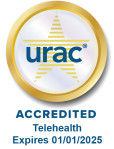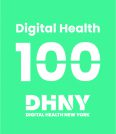One patient turned to UCM for care when experiencing a severe UTI while traveling on a holiday weekend, avoiding a trip to the ER.
Leigh, an active and healthy 80-year-old, recently took a trip to visit her daughter’s family for the week between Christmas and the New Year’s holiday. Leigh has both of her COVID vaccinations, as well as a booster, and took all possible precautions while flying to reduce the chance of her catching COVID, or any other illness during her travels. Her daughter’s family is also fully vaccinated and was careful to not put themselves or Leigh at risk – they wanted their trip together to be filled with all the winter activities they’ve always enjoyed together, like ice skating and roasting marshmallows!
Getting sick while away from home
Unfortunately, Leigh started feeling ill just a few days into the trip, but not from COVID. Leigh was experiencing the painful symptoms of a urinary tract infection (UTI). Throughout her life, Leigh has had UTIs, so she thought she’d be able to keep it from getting worse by the conventional remedies such as cranberry juice and over-the-counter medicines, plenty of water, and rest.
When Leigh’s daughter went to check on her later that evening, she was quite alarmed to see how her mother looked and felt much worse, “I could see that her color was off and that she was really uncomfortable. It was apparent we needed to speak with a medical professional,” she explained. But, it was 8pm at night during a holiday week, and the roads were full of snow! Her only good option was to head to the Emergency Room. She worried that it could cost hundreds – if not thousands – of dollars to go to the ER. And, she would have to travel in the bad weather, wait to see a doctor, and potentially be exposed to other illnesses while in the waiting room.
Leigh’s daughter remembered that her mother has access to UCM Digital Health through her health plan. She decided to avoid the ER and try UCM first.
A virtual consult results in needed prescription
Using UCM’s mobile app, Leigh provided information on her condition and requested a consult. Soon, a Care Coordinator from UCM called to confirm that a medical provider would reach out to her. Shortly thereafter, a doctor from UCM phoned. After hearing Leigh’s symptoms, the medical provider spoke with Leigh about the level of pain she was in and the symptoms she was experiencing. The doctor asked her further questions, including if she was experiencing nausea, back pain, or had a fever. “We can assess the level of care needed for a UTI through a series of specific questions,” the UCM medical provider explained. “Based on those questions, we can guide care and call in prescriptions as needed.” For Leigh, the medical provider determined that she needed a round of antibiotics that her daughter was able to pick up that night.
The next afternoon, despite having two doses of the antibiotic, Leigh was not doing much better. In a follow-up call with a nurse practitioner from UCM, Leigh shared that her level of discomfort and need for frequent urination had not improved. The nurse practitioner felt that adding a prescription would help reduce the spasms related to a UTI. “The antibiotic, in this case, was most likely already working to clear the infection, but it was not helping with the spasms,” the nurse practitioner explained. “By prescribing a stronger version of what can be purchased over the counter, Leigh’s body would get relief from those spasms.”
When lab work indicates important follow-up care
However, the nurse practitioner determined that Leigh should go in for lab work the next day, just to confirm the UTI and to make sure there was nothing else going on. Early the next morning, a Care Coordinator from UCM called Leigh to set up an appointment at a nearby lab where Leigh could provide a sample.
Because Leigh was feeling better two days later, she was able to make her scheduled return flight home. “There is no way I could’ve traveled feeling as bad as I’d felt,” said Leigh. The evening she arrived home, she received another follow-up call from the UCM team with the lab results, reporting that there was indication of a UTI in her urine.
With the lab results, and because Leigh reported that she wasn’t quite back to normal, that she was coming to the end of her course of antibiotics, the UCM provider determined that he would add another round of antibiotics to make sure the infection was completely clear. And, that was just what Leigh needed to feel better!
Value delivered to the patient and to the health plan
Leigh was able to get immediate access to a virtual team – including an ER provider and a Care Coordinator – who provided her with high-touch service and compassionate care immediately, when she needed it most. The Care Coordinator handled all of the follow-up work for her, including writing her prescription, scheduling an appointment for lab work, and checking-in on her progress. Leigh saved time and avoided added exposure to illness in the ER and the extra cost of an ER visit. And, she got her issue resolved.
The health plan avoided the ER cost and had a positive patient outcome, with a very satisfied patient as well! Leigh got timely, immediate treatment, so that she had less acute conditions, avoiding future inpatient admissions and potential associated higher costs of ongoing care.






